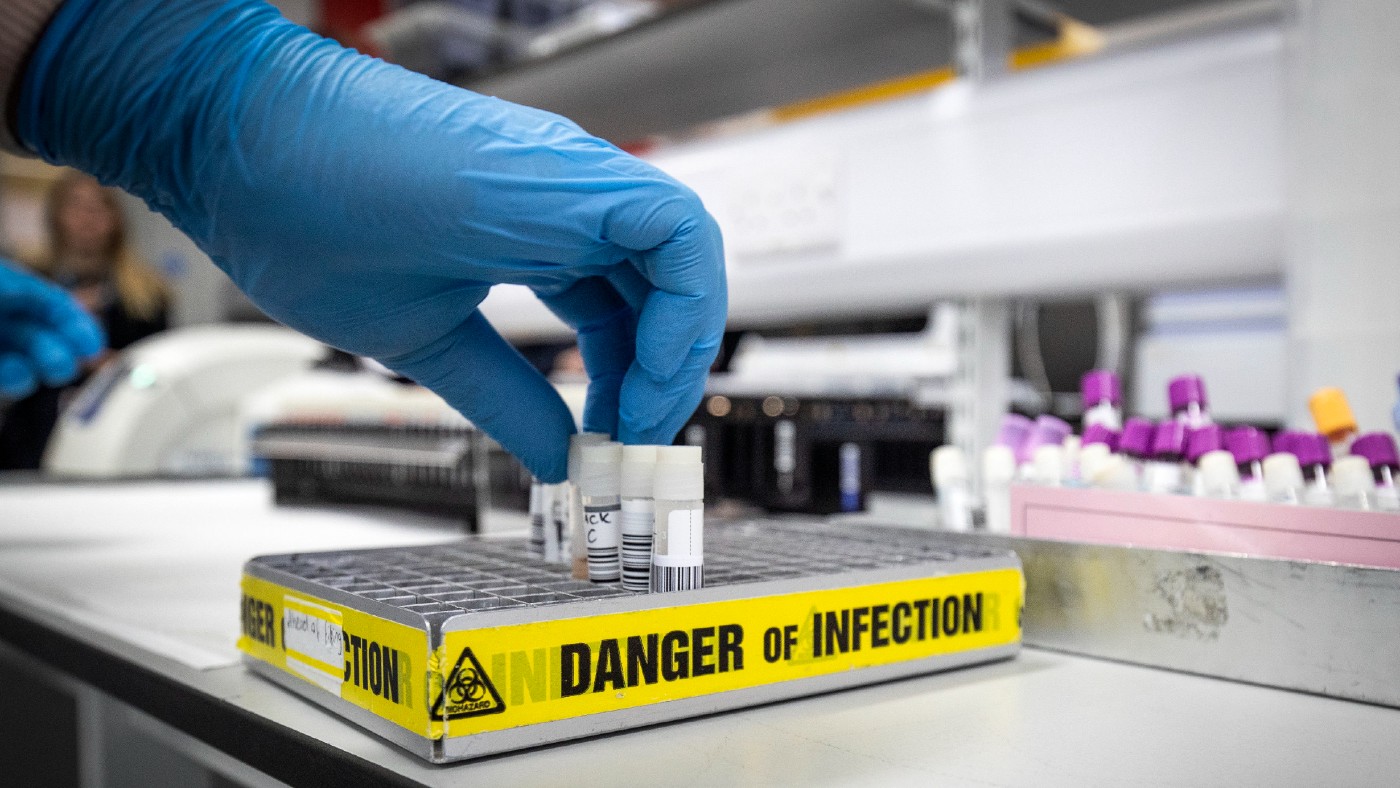BA.5: how worried should we be about the new Omicron variant?
Mutation described as ‘worst version yet’ by one expert, but others have downplayed fears

A free daily email with the biggest news stories of the day – and the best features from TheWeek.com
You are now subscribed
Your newsletter sign-up was successful
The Covid variant known as BA.5 is powering another wave of infections, with cases rising in many parts of the world.
Described as a “big deal” and “the worst version” of the virus to date by CNN, the latest variant of the Omicron virus has caused widespread concern. However, some experts are playing down the danger.
Here is what we know.
The Week
Escape your echo chamber. Get the facts behind the news, plus analysis from multiple perspectives.

Sign up for The Week's Free Newsletters
From our morning news briefing to a weekly Good News Newsletter, get the best of The Week delivered directly to your inbox.
From our morning news briefing to a weekly Good News Newsletter, get the best of The Week delivered directly to your inbox.
Where did BA.5 start?
BA.5 was identified in January and has been tracked by the World Health Organization (WHO) since April. It has already caused spikes in case rates. Even taking into account reduced testing, numbers are up in South Africa, where it was first discovered, the United Kingdom, parts of Europe, Australia, the US and several other nations.
With WHO data showing that coronavirus cases worldwide have now been rising for four weeks in a row, anxiety is growing over the new variant.
What are the symptoms?
Peter Chin-Hong, an infectious disease specialist and professor in the University of California, told Buzzfeed News that the symptoms of BA.5 are “actually very similar to BA.2 – sore throat, scratchy throat, congestion, runny nose, headache, fatigue, muscle aches”.
Less common symptoms, he said, were shortness of breath and loss of taste and smell.
A free daily email with the biggest news stories of the day – and the best features from TheWeek.com
Is it dangerous?
The new variant is “an escape artist”, cardiologist Eric Topol told PBS News, because “our immune system doesn’t recognise it like we did the previous versions to the virus”.
This means people are getting re-infected, often within weeks of recovering from a previous bout. “Suddenly,” said CNN, “many people who had recovered from Covid-19 as recently as March or April found themselves exhausted, coughing and staring at two red lines on a rapid test”.
This makes the variant “especially dangerous” as it means people who believe they are temporarily safe from Covid due to a previous infection are “suddenly vulnerable once again”, said the Daily Mail.
Worryingly, Topol described BA.5 as “the worst version of the virus we’ve seen”. In a newsletter posted on the US platform Substack, he explained that the variant “takes immune escape, already extensive, to the next level, and, as a function of that, enhanced transmissibility”.
However, he added, “it doesn’t appear to be accompanied by the ICU admissions and the deaths as previous variants”. The WHO also noted that, in Europe, “what we’re not seeing is an increase in intensive care unit admissions”.
David Dowdy, an infectious diseases epidemiologist at Johns Hopkins University, told BuzzFeed that BA.5 is the most contagious strain so far, “but not dramatically so”.
A vicious cycle
Nevertheless, the increased spread of BA.5 is expected to lead to more variants, which could themselves become more life-threatening.
“More variants mean more infections; more infections mean more variants,” said The Atlantic, adding that “a high rate of infections is keeping us in the vicious viral-evolution cycle”.
The UK government is continuing to encourage people to take up Covid vaccination, with the latest figures suggesting that as many as three million adults are yet to come forward for a jab.
A government spokesperson told the BBC that officials were “working hard” to reach unvaccinated people, highlighting the use of walk-in and mobile vaccination clinics and “bespoke messages from trusted voices – such as faith and community leaders”.
-
 Antonia Romeo and Whitehall’s women problem
Antonia Romeo and Whitehall’s women problemThe Explainer Before her appointment as cabinet secretary, commentators said hostile briefings and vetting concerns were evidence of ‘sexist, misogynistic culture’ in No. 10
-
 Local elections 2026: where are they and who is expected to win?
Local elections 2026: where are they and who is expected to win?The Explainer Labour is braced for heavy losses and U-turn on postponing some council elections hasn’t helped the party’s prospects
-
 6 of the world’s most accessible destinations
6 of the world’s most accessible destinationsThe Week Recommends Experience all of Berlin, Singapore and Sydney
-
 A Nipah virus outbreak in India has brought back Covid-era surveillance
A Nipah virus outbreak in India has brought back Covid-era surveillanceUnder the radar The disease can spread through animals and humans
-
 Is the US about to lose its measles elimination status?
Is the US about to lose its measles elimination status?Today's Big Question Cases are skyrocketing
-
 Covid-19 mRNA vaccines could help fight cancer
Covid-19 mRNA vaccines could help fight cancerUnder the radar They boost the immune system
-
 Is this the end of ultraprocessed foods?
Is this the end of ultraprocessed foods?Today's Big Question California law and the MAHA movement are on the same track
-
 Can TrumpRx really lower drug prices?
Can TrumpRx really lower drug prices?Today’s Big Question Pfizer’s deal with Trump sent drugmaker stocks higher
-
 The new Stratus Covid strain – and why it’s on the rise
The new Stratus Covid strain – and why it’s on the riseThe Explainer ‘No evidence’ new variant is more dangerous or that vaccines won’t work against it, say UK health experts
-
 RFK Jr. vaccine panel advises restricting MMRV shot
RFK Jr. vaccine panel advises restricting MMRV shotSpeed Read The committee voted to restrict access to a childhood vaccine against chickenpox
-
 RFK Jr. scraps Covid shots for pregnant women, kids
RFK Jr. scraps Covid shots for pregnant women, kidsSpeed Read The Health Secretary announced a policy change without informing CDC officials